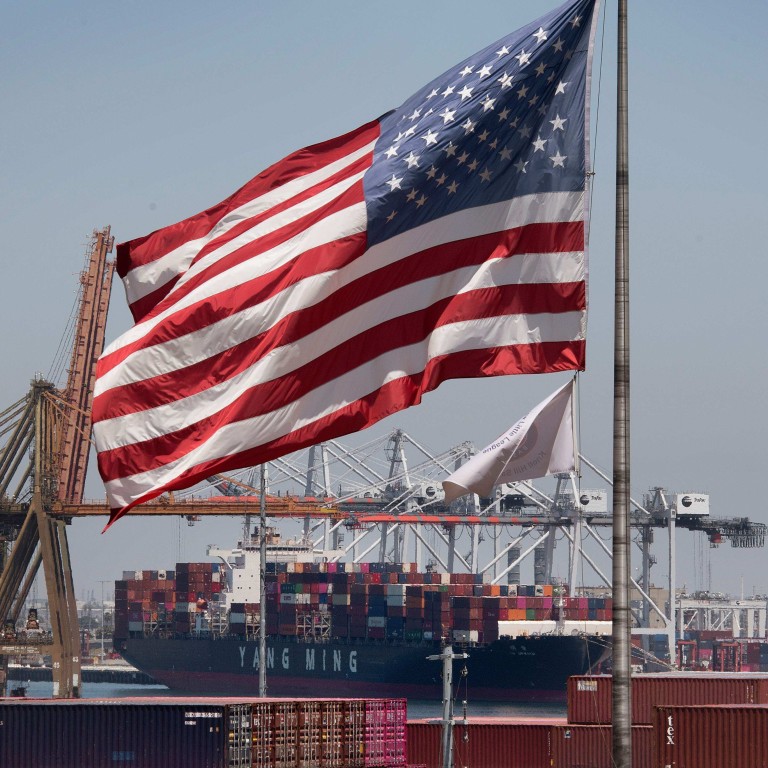
US protectionism hits China hardest, and Chinese are more averse to trade because of it, study finds
- If Beijing makes trade concessions in the face of strong domestic opposition, it ‘would risk a potentially destabilising domestic backlash’, according to PIIE study
- The findings are said to have ‘worrying implications’ in respect to the world’s open-trading system
Among all countries, China has been most affected by the United States’ shift toward protectionism in recent years, and this in turn has resulted in Chinese citizens being less supportive of open trade, according to a new study by the Peterson Institute of International Economics (PIIE).
With an emphasis on “the world’s most important trading relationship”, the case study is forthcoming in the Review of International Organizations, a peer-reviewed academic journal that publishes scientific contributions in the field of political economy.
PIIE said it formulated the study by using results from three of its independent surveys conducted in China at key periods during the ongoing US-China trade war that began in 2018 under the previous US administration of Donald Trump and has continued under President Joe Biden.
China’s yuan reserve pool reflects threat from US ‘weaponisation of finance’
The findings show that US protectionism has resulted in “direct reciprocity” and “generalised reciprocity” mentalities among the Chinese survey respondents.
The former refers to “declining support for cooperation with countries that do not themselves cooperate”. And when that happens, PIIE said, the public may be more inclined to retaliate by raising tariffs on imports from only the protectionist country.
The latter form of reciprocity, however, is much broader and results in not just an aversion toward trade with one country, but toward all countries.
“Protectionist actions are likely to also reduce the target country public’s support for free trade writ large,” says the study, conducted by Yeling Tan, a non-resident fellow at PIIE, and David Steinberg, a political scientist with the School of Advanced International Studies at Johns Hopkins University.
These findings “have worrying implications for those concerned about the future of the open-trading system”, the authors note.
The US-China trade war began because Washington said Beijing was engaging in “unfair trading practices” and restricting market access for American companies. Every subsequent move by the US has prompted retaliation from China.
“The survival of the open-trading system will depend in no small part on retaining mass public support for free-trade policies,” PIIE said, adding that the US bipartisan shift towards protectionism has reduced this enthusiasm for open trade in not only China, but other countries as well.
A BRICS free-trade deal? China floats idea as US rivalry heats up
In all three of PIIE’s surveys, when respondents were told about the tariffs imposed by the US, they indicated that they wanted China to adopt a more protectionist trade policy as well. And those responses were compared with those of control groups that weren’t first primed about the trade war.
However, one of the noteworthy findings from the two-year period spanning April 2019 to May 2021 was that Chinese support for free trade also declined among control groups, as the trade war escalated.
When the US increased tariffs from 10 per cent to 25 per cent on US$200 billion worth of Chinese imports in April 2019, a survey afterward showed that baseline support for open trade policies declined sharply – from 6.5 points on a 10-point scale to 4.3 points, with a score below 5.0 indicating that free-trade policies were “unfavourable”.
The third survey, conducted after Biden took office, saw little decline in protectionist sentiment.
Around 3,000 respondents were recruited for each survey using a Chinese crowdsourcing survey research company.
If the regime were to make trade concessions to the United States in the face of strong domestic opposition, this would risk a potentially destabilising domestic backlash
The authors posited several reasons why support for free trade may decline. If individuals see that the norms of free trade are being ignored by powerful global actors, they are likely to conclude that their country should not abide by international conventions either. Foreign protectionism may also lead citizens to believe that economic interdependence leaves them vulnerable to the unilateral actions of foreign governments.
The generalised reciprocity logic can be seen in how the Chinese government has reconsidered its trade and other economic policies in recent years – a turn that is reflected in the declining public enthusiasm for open trade.
“If the regime were to make trade concessions to the United States in the face of strong domestic opposition, this would risk a potentially destabilising domestic backlash,” noted the study.

